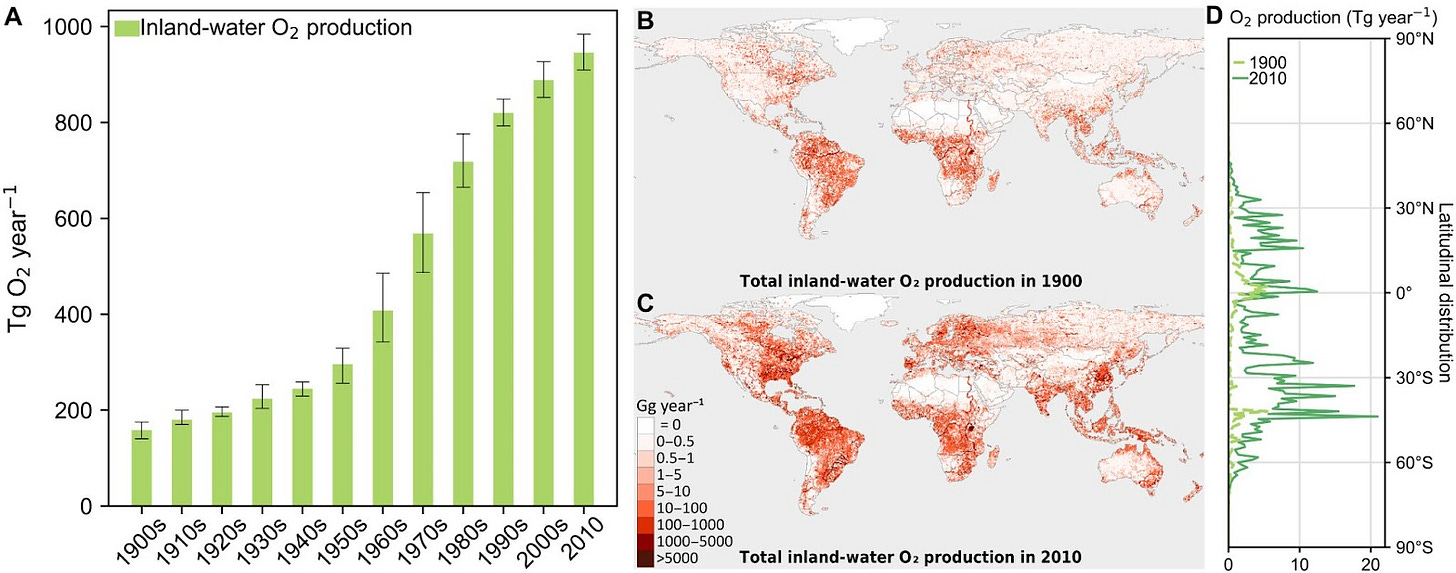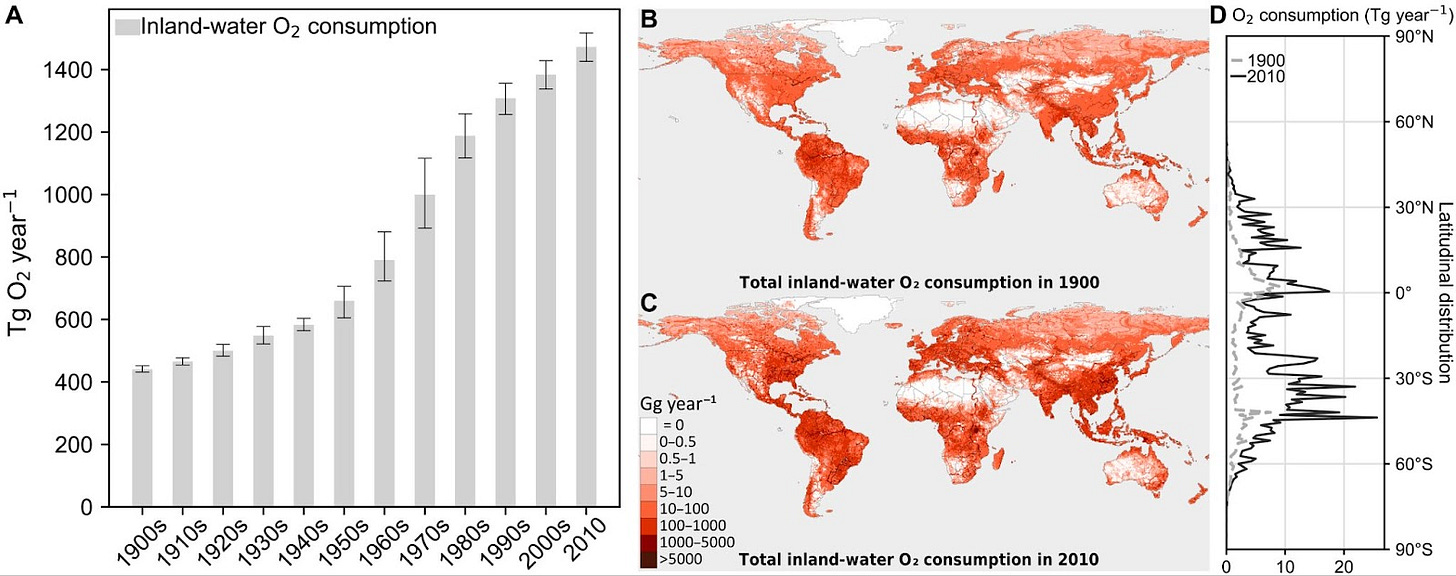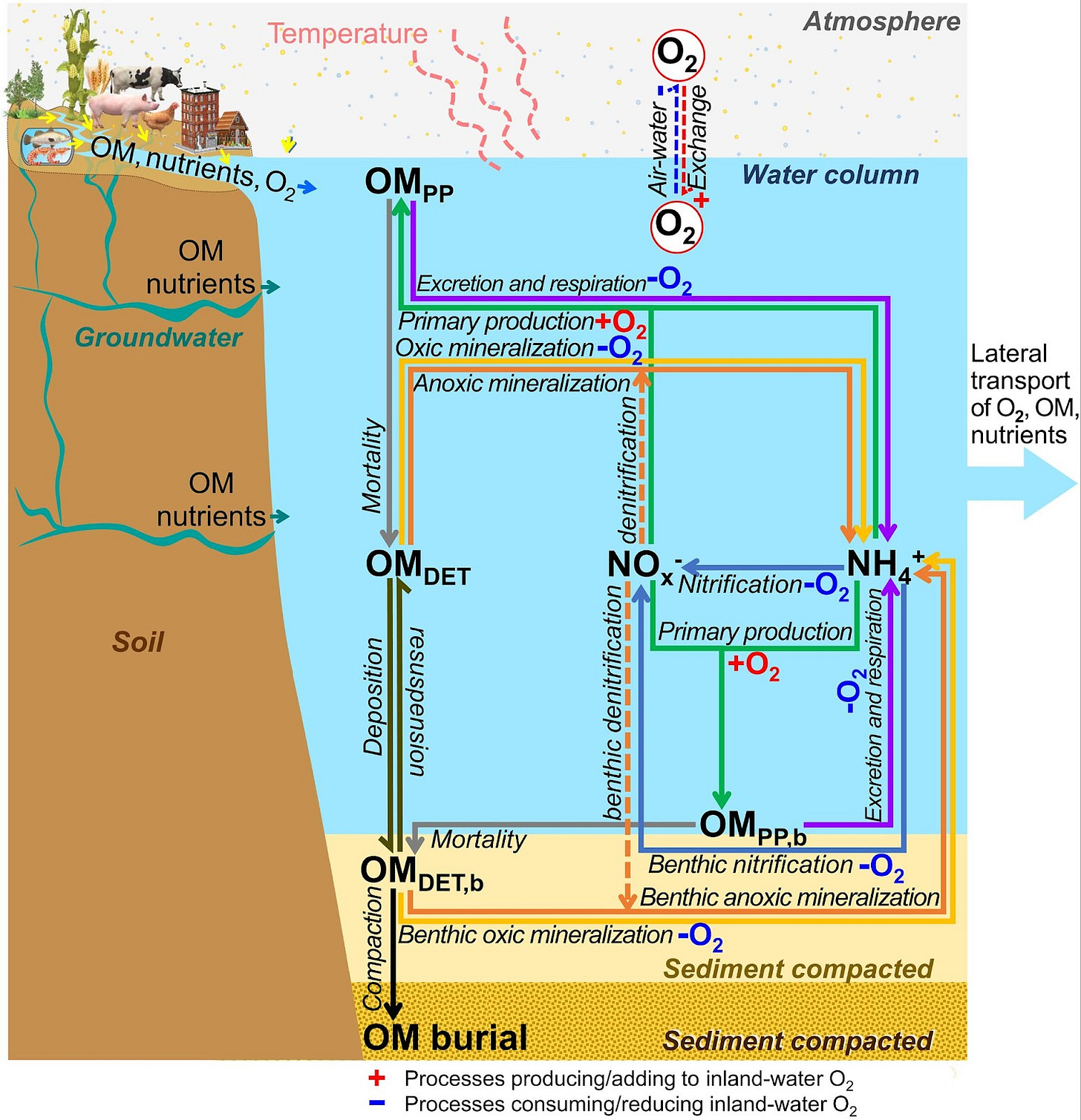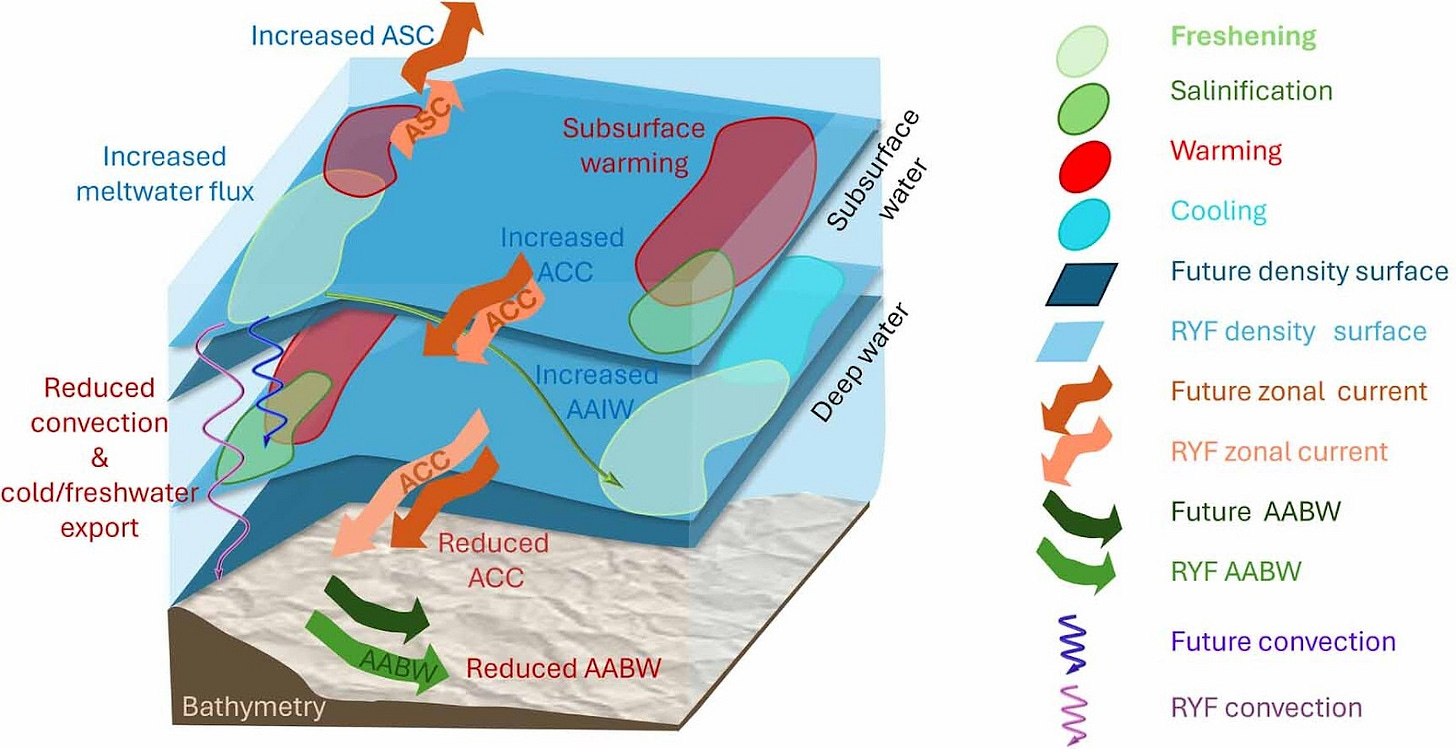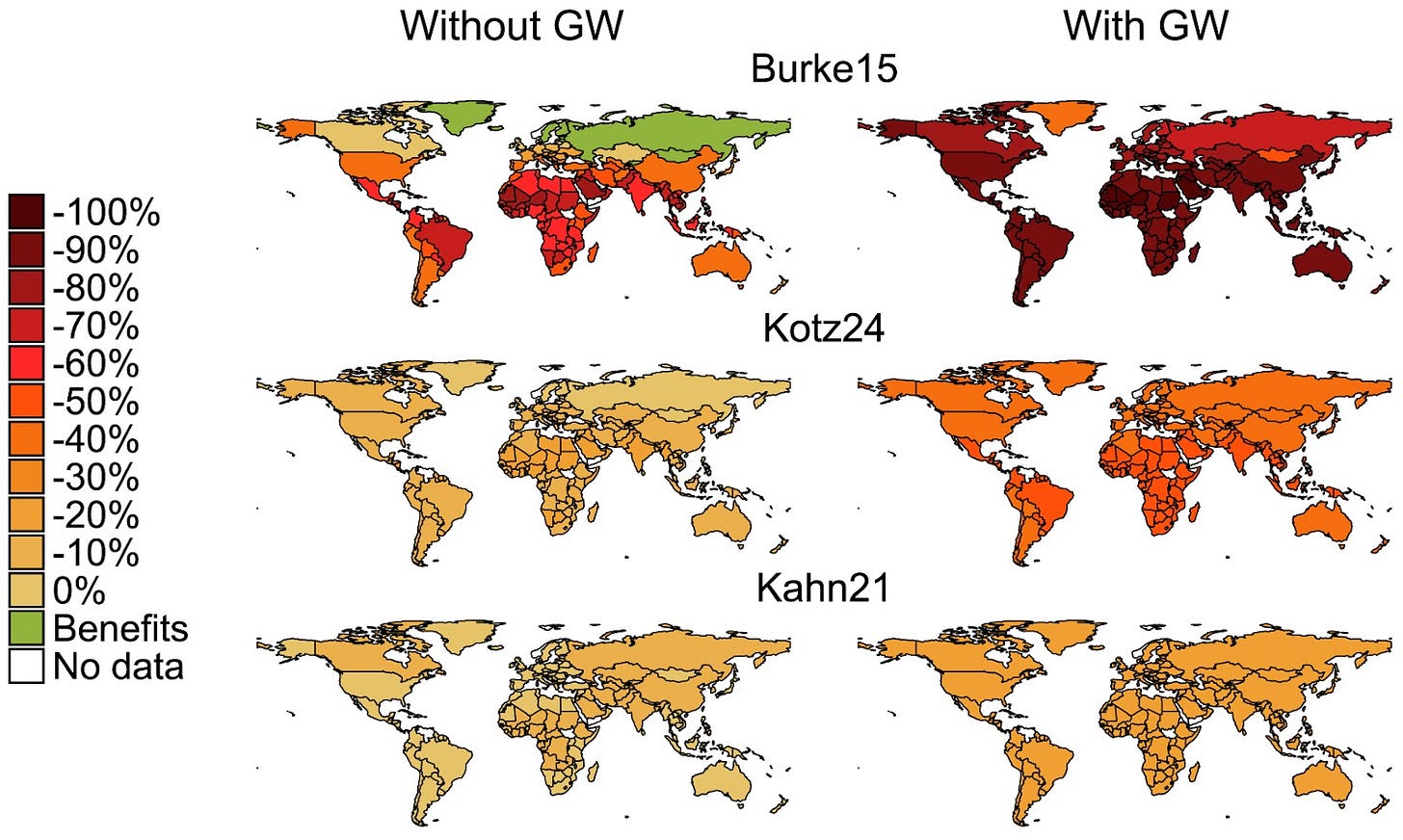Last Week in Collapse: March 30-April 5, 2025
Protests, sickness, War, and tariffs. “Liberation Day” feels more like a life sentence to an unstable world.
Last Week in Collapse: March 30-April 5, 2025
This is Last Week in Collapse, a weekly newsletter compiling some of the most important, timely, useful, soul-crushing, ironic, amazing, or otherwise must-see/can’t-look-away moments in Collapse.
This is the 171st weekly newsletter. You can find the March 23-29, 2025 edition here on Reddit if you missed it last week. Thank you for subscribing to the Substack.
——————————
Last March proved to be the Netherlands’ driest and hottest on record. A couple monthly heat records were set around the Bay of Bengal, some nighttime highs in March were broken across India, and we came close to a record cold March temperature in Antarctica. Flooding on some Greek islands lasted a couple days, but did not result in any human deaths. Madrid meanwhile hit 920% of its average March rainfall, while Morocco suffered from Drought and locusts.
An interesting study in Science Advances reports that inland waters have been experiencing a progressively worsening phenomenon relating to “oxygen turnover” caused by a variety of human factors: dams, climate change, and fertilizer runoff. Most inland bodies of water are producing more oxygen than they did in 1900 (much more, perhaps 4x as much)—but are also consuming much more (more than 3x) than they used to. The net result is that these bodies of water have become bigger oxygen sinks, thereby endangering marine animals and damaging water quality.
Damage report from Myanmar’s 7.7 earthquake on 28 March: 3,838+ have been confirmed dead in Myanmar; plus 21 deaths in Thailand. A number of major bridges around Mandalay have Collapsed, and 37 °C (100 °F) temperatures, alongside mosquitoes, add to the misery. “The smell of the dead bodies has overwhelmed the town,” one observer recounted. The central government is busy with combating a patchwork of rebel factions that, combined, hold about half of the country’s territory—and the rebels are too poor & disorganized to respond at scale. Until last Thursday, government forces were still launching airstrikes raiding villages, and forcibly conscripting the unlucky, but they recently agreed to a 3-week ceasefire. USAID is largely absent. Food remains the top priority for most of the affected people, and the military junta is accused of appropriating over half of some incoming humanitarian aid. Some major aid partners have already run out of funding & supplies.
What happens when invasive species take over completely. In the Hawai’an island of Oahu, some forests have experienced the total displacement of native species to tropical foreign species—what some ecologists call “freakosystems.” Meanwhile, a study found an invasive bamboo has established itself in the wild in Poland, along with the giant miscanthus plant.
1,900+ scientists signed an open letter condemning the Trump Administration's large cuts to scientific research and investment. The letter comes just as a Nature poll (with about 1,600 scientist responses) announced that 75% of scientists (particularly early-career professionals) are reportedly considering leaving the United States. Other scientists are writing & warning about fossil fuels and climate change, but nobody is listening. If scientists spent as much time actively marketing & advertising their work as they do researching, perhaps people would pay attention more.
Scientists are warning about the weakening of the Antarctic Circumpolar Current, currently earth’s strongest ocean current. The strength of this current is important, because it keeps cold water flowing in the Southern Ocean. It is projected to weaken by 20% by 2050, which could invite warmer waters (and pollutants) farther south, hastening the melting of Antarctica, with all the attendant consequences. Another study which came out last week suggests that a warming Southern Ocean will result in greater rainfall in wetter summers in East Asia & wetter winters on the west coast of the U.S.
And another study’s lead author says that the Beaufort Gyre is weakening in the Arctic Ocean above Canada, which will eventually release freshwater outside the region and will probably impact the AMOC.
El Niño events have been getting longer and longer—and a study from Nature Geoscience says this one isn’t humanity’s fault; it’s been part of an ongoing process for some 7,000 years, mostly as a result of earth’s changing orbit. The implications include increased sea surface temperatures & storms in parts of the Pacific, while other regions will receive Droughts. Meanwhile, Arctic sea ice hit new record lows for this time of the year.
A holistic macroeconomic study on global warming’s impact on the economy warns that a 3 °C rise could result in a 40% loss of the world economy—when factoring in declines in worker productivity due to rising temperatures & heat waves; mass migration disrupting everything; the spread of diseases; the impact on agriculture; etc. The researchers write that “it is the impact of global warming on the frequency, magnitude and duration of extreme events that is likely to have the greatest effect on systems.”
A study on Quebec tree ring rises over the last 195 years found decreasing snowpack since the late 1930s. Scientists say that roughly 1,430 bird species have been made extinct by humans, though the true number may be around 2,000. Brisbane’s 2032 Olympic Games has had its Olympic contract altered to loosen the obligation on being “climate positive,” changed to simply “aiming at removing more carbon from the atmosphere than what the Games project emits.”
Keep reading with a 7-day free trial
Subscribe to Last Week in Collapse to keep reading this post and get 7 days of free access to the full post archives.



